Shalom works towards Strengthening Structures of Conflict Transformation at the Grassroots Upwards
One of the major underlying causes of conflict that is conceptualized by the renowned conflict analysis expert, Johan Galtung through his peace research paradigm is structural and institutional inefficiency. Galtung hypothesizes that structuralism defines reality in terms of the relationships between elements in a society. Consequently, if the state of human relationships is explained with reference to the nature of the underlying social, political, economic and even cultural structures then conflict will be understood in depth and interventions accurately designed.
Characterized by historical marginalization and the weakening institutional frameworks that can no longer be wholly entrusted with the responsibility of responding efficiently to human need for security, the Northern Kenya and Kenya’s Urban informal settlements are among those regions that remain critically exposed to the challenge of insecurity which has heightened the residents’ vulnerability to unprecedented injury, death, poverty and spiraling underdevelopment. Shalom continues to invest resources into the transformation of social structures as a basis for the restoration of mutually enriching relationships leading to the establishment of pro-active communities whose work towards peace and development is solely driven by concern for the wellbeing of each other.
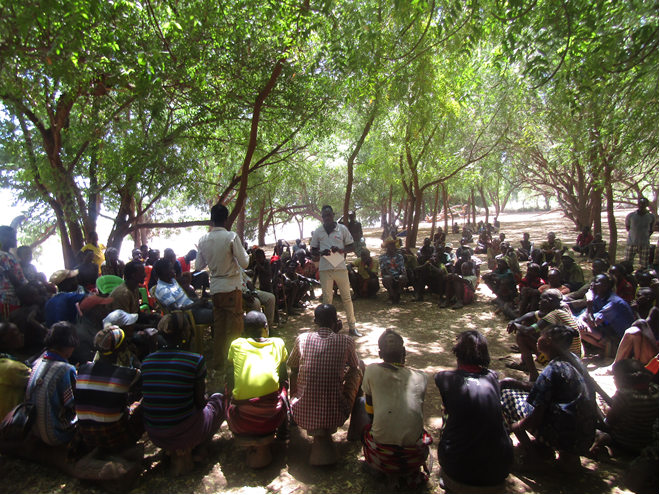
Shalom-SCCRR’s Team conducting an initial forum with the Dassanech in Koro, on the Kenya Ethiopia border (‘Ilemi Triangle’)
In March 2019, Shalom lays more focus on strengthening and supporting the local institutional frameworks through initiating community mediation and dialogue programs in Marsabit, Samburu and Nairobi counties (See Work Output Diagram below). Over the years, one of the lessons that have been learnt through Shalom’s interaction with the communities is that sustainable conflict intervention especially among pastoralist communities is largely dependent upon the functionality of both government and local institutions at the grassroots level. Strong institutions at the grassroots have a preventive effect on conflict since they deter people from engaging in criminal activities that might spark revenge and subsequent manifest conflict between communities. It is in response to this that Shalom will be engaging communities in 6 of its 30 project areas to develop with them a framework of relationship that will enhance their access to the duty bearers who play a pivotal role in the decision making processes regarding matters of security and conflict resolution at the local level. It is expected that the project intervention in March will enable the over 200 community leaders from the 6 target project areas in Marsabit, Samburu and Nairobi to reach out to about 24 middle level government leaders, approximately 100 key women and youth leaders, about 60 religious leaders drawn from different faiths among other influential decision makers at the middle level. It is projected that the relationship between community members and the leaders will help improve the motivation to report cases of looming conflicts, prevent the success of any planned attacks and even help communities in the long term to work together towards initiating and implementing joint development projects.
In the education and development department, Shalom continues to conduct needs assessments, facilitating the application process and continuing with ongoing constructions. Needs assessment will be conducted in 6 new schools that Shalom has marked for support in this year 2019 in both Samburu, Marsabit and Nakuru counties. The application for the prioritized needs will be conducted in 5 schools that Shalom continues to build as a continuation from previous activities accomplished while the ongoing construction projects which were carried forward from 2018 are in 3 schools.
The details of the whole program schedule are elaborated below: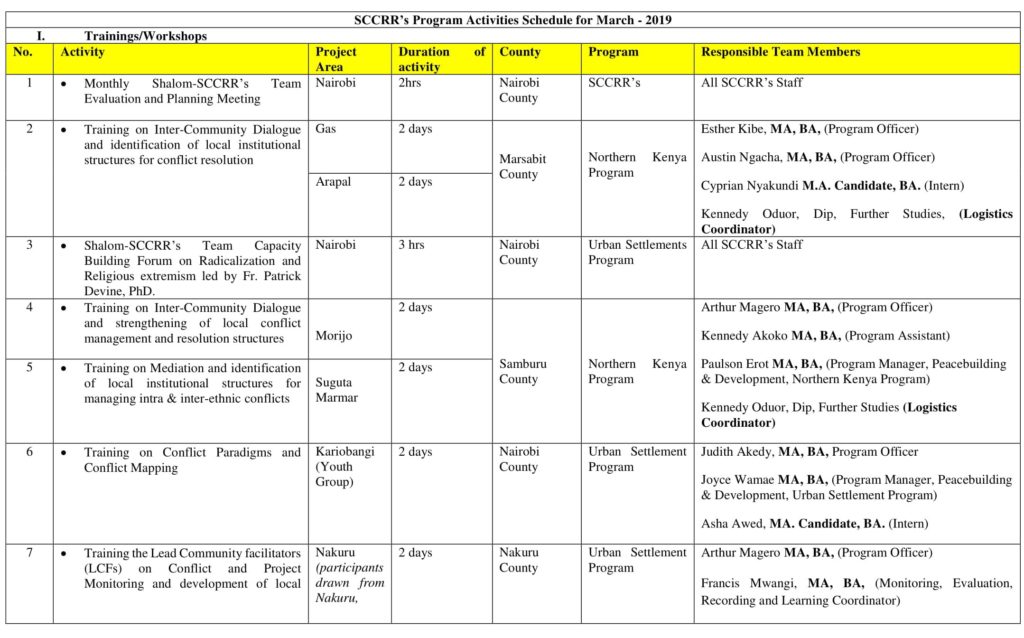
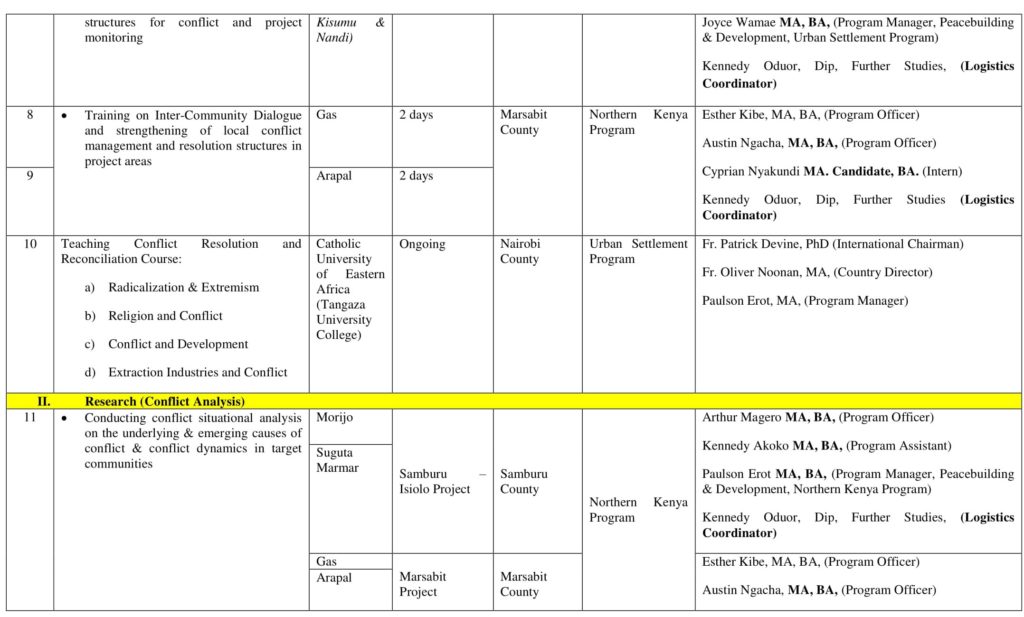
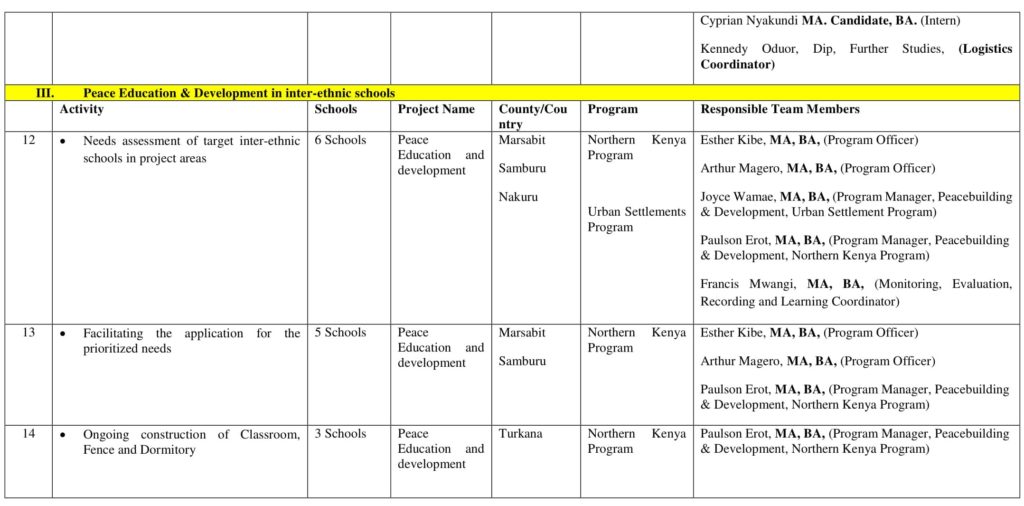
At Shalom, we are privileged to have a team of highly qualified staff whose expertise and vocational commitment is always a ready asset that supports the meticulous implementation of the many SCCRR peacebuilding and development activities. We are confident that the availability of these staff will go a long way in ensuring that the March activities are a big success. Furthermore, the frequent management expertise, leadership and guidance from Fr. Oliver Noonan, MA, (Country Director), Fr. Patrick Devine, PhD (International Chairman) and our International Consultants has to be acknowledged given the positive direction that they continue giving to this work.
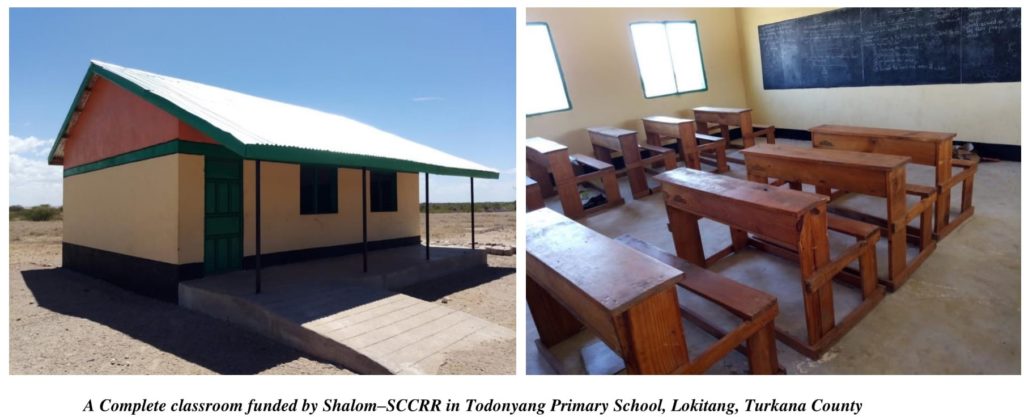
On behalf of the Shalom Team, we would like to acknowledge all Shalom DONORS and PARTNERS for their steadfast commitment to ensuring that conflicting communities in Eastern Africa are empowered to facilitate their own solutions that build on fostering sustainable peace and development. This is your contribution and thousands of children families and communities are benefitting!
By SCCRR Program Management Team
Godfrey Okoth Onyango, MA, Director of Programs.
Paulson Tadeo Erot, MA, Program Manager (Peacebuilding & Development, Northern Kenya Program).
Joyce Wamae Kamau, MA, Program Manager (Peacebuilding & Development, Urban Settlement Program).

